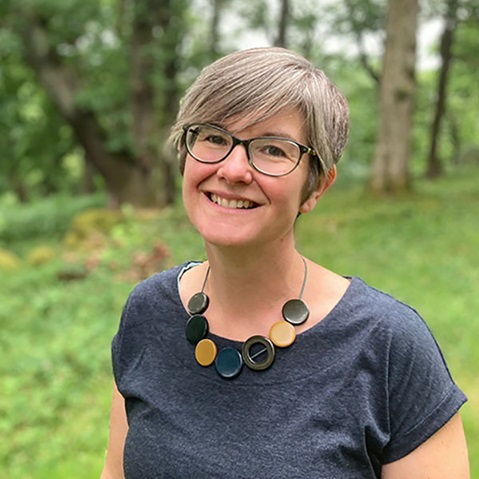



Katy Woodington, RWE’s Community Investment Manager for the UK & Ireland, reflects on her transition from the voluntary sector to leading RWE's Future Bright programme, emphasising the transformative potential of community projects through sustainable support and active listening to local needs. Her experience underscores the importance of working with the communities that host our projects – a key element of RWE’s Growing Green Strategy.
Katy’s forward-thinking approach reflects her passion for meaningful community involvement and her vision for a lasting, community-empowered future supported by RWE's renewable energy projects.
In my early days within the voluntary sector, I encountered many community projects that faced significant challenges due to funding shortfalls and the bureaucracy associated with many traditional funding streams. Witnessing community's resilience and understanding their project's potential to drive significant change as well as how hard volunteers fought to make things happen was a turning point for me. This experience taught me the importance of sustainable support and listening deeply to community needs. At RWE, it's why I emphasise building partnerships that are based on understanding and addressing local challenges, ensuring our investments lead to meaningful, long-lasting impacts.
Balancing corporate objectives with community aspirations requires a nuanced approach, however at RWE, we know our future is not just about technology but about people - their lives, their futures, and the planet we all share. Working with the communities that host our projects is a key part of our growing green strategy, so there is a very natural alignment as we aim to make renewable energy a catalyst for positive change. We engage in continuous dialogue with community stakeholders to understand their perspectives and align with their goals. Our community funds in the UK put local people right at the heart with their priorities taking centre stage. These funds are a unique opportunity for local people to have real agency over how projects and ideas in their local area are supported.
Communities have proposed and developed a range of innovative ideas, from community transport initiatives using electric vehicles to local biodiversity projects that engage volunteers in monitoring and protecting important species.
One standout example was a community initiative to help develop a long term sustainable income stream for a volunteer run hospice. Instead of providing traditional grants to support the project, the fund was able to offer financial support to help purchase a nearby building which has since been converted into a bunkhouse. After a huge investment in time and energy from the volunteers, RWE’s community funding has helped to provide both a long term sustainable income source for the hospice whilst also adding to the diversity of tourism accommodation offerings in the local area.
As part of the Future Bright initiative, we’ve introduced the 'Future Bright' recognition award. We’d like to recognise best practice in delivering community projects, and then share these with other communities who are just starting their programmes, or are perhaps struggling with theirs and looking for inspiration.
Anticipating the government's increasing focus on community benefits, RWE is proactively engaging with policymakers and industry partners to shape and adapt to these changes. We're involved in developing new standards, like the solar community benefit protocol, and building on existing best practise in the delivery of community benefit from offshore and onshore wind projects. The aim is ensure communities have clear, tangible benefits from local energy projects. Our aim is to lead by example, demonstrating how energy companies can work collaboratively with communities and government to create mutually beneficial outcomes.
I envision community engagement and local partnerships becoming even more integral to our operations. We're constantly exploring new approaches and strategies to ensure that communities remain in charge of their funding and are actively involved in shaping how their community is supported and which projects are invested in.
Our commitment to local communities is a binding thread throughout all our projects. Whether it’s through the delivery of education and skills initiatives to make sure local people are well placed to secure jobs in the industry, or by working with local businesses to encourage and support development of local supply chain opportunities, we’d like to encourage a focus on creating sustainable legacies, where community benefits extend well beyond the lifespan of our projects.
Our community funds can help to build a strong community fit for the future with people, buildings, and other resources to deliver their local plans and meet the next challenge. Investment in education, local economic development, and environmental sustainability are all ensuring that our impact is both positive and enduring.

